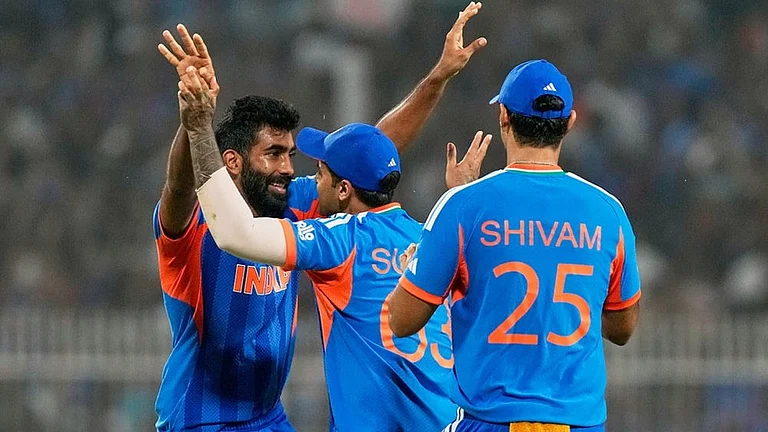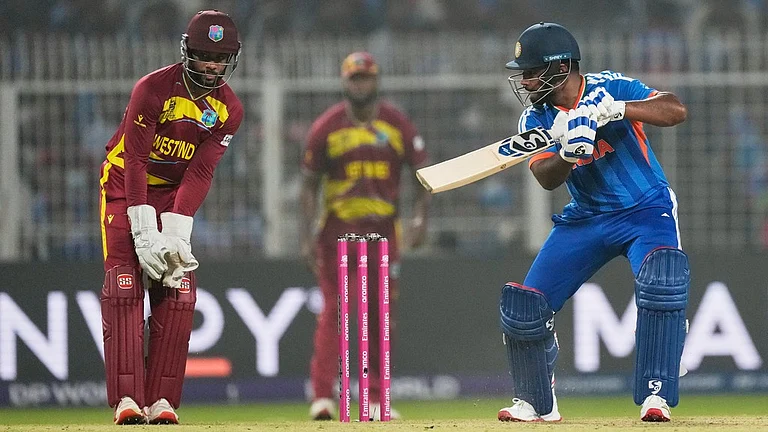There has always been a huge demand for IITians in the international job market. Remember what Wesley Clark famously said in 2003? The US presidential candidate, who joined the race for the Democratic Party’s nomination, promised immediate American citizenship for anyone with a degree from an IIT. Microsoft head Bill Gates, too, once said IITians were his first choice while looking for software engineer.
All that seems to be undergoing a big change. In the last few years, there is a slip in the students getting admitted to IITs, despite a rise in the number of the institutes. This year, there was a big surprise when 65,000 candidates of the 2.3 lakh who cleared JEE-Mains did not apply for JEE-Advance. It points towards a big shift. What’s more, eminent entrepreneurs, including IITian N.R. Narayana Murthy, have of late been raising a serious question before the nation by noting that 80 per cent of those passing from the IITs are not of the desired standard.
So, what has happened with the IITs in the last few years? Why have they lost their sheen? Why are IITs not viewed with the same respect once associated with them?
First and foremost, the entrance test for IITs has a lot of deficiencies that prevent the deserving ones from reaching there. It is well known that India today has two kinds of education systems: one for the haves who have the luxury of studying in plush schools and top-notch coaching institutes, the other for the have-nots living in rural areas and studying in ill-equipped government schools. Amid all that, education has been reduced to a market commodity, which only the rich and the mighty can afford for their wards. For the rest, there is no option, but to accept whatever is there in the name of education.
Another important thing is the growing proclivity for learning by rote right from the school stage. The students do addition, subtraction, multiplication and division, but hardly understand the whys and hows. Neither do they look for proofs. Not many take the pains to understand the restlessness of the poor children, whose curiosity remains unsatisfied. Yet, to their credit, they still manage to clear Plus-2 mostly from ordinary schools that are devoid of basic infrastructure like laboratories, libraries and qualified teachers.
Predictably, they get a jolt when they try for IIT entrance tests, where the aspirants also struggle with lack of specialised coaching. This is one point where they come acutely face-to-face with the consequences of poverty, which prevents them from attending costly coaching institutes. They suddenly realise that the difference between Plus-2 syllabus and that for IIT entrance is something they cannot cover on their own.
The authorities must try to find a way out to tap real talent—and not those who come through learning by rote in coaching institutes. Is the team of question-setters not able to ask things that could test students’ conceptual grasp, and not rely on what mushrooming coaching institutes offer through stereotype education? Is it not making the students dependent on the institutes with big fee structure and creating a gulf between the have and the have-nots? Is it not a cruel joke with the poor students who come up the hard way, but are unable to pull themselves up beyond a certain stage?
In the last few years, IIT entrance test has also been in the news for asking wrong questions. And, when the matter gets highlighted, the authorities resort to “average marking” as the last resort. Those who work hard all the years and those who are non-serious get the same marks for such questions.
When the students reach IIT, another situation awaits them. IIT is used more as a brand, so the focus is on how to use it to one’s advantage. The faculty members are also inclined to impart education in an interesting way to improve the creativity of students. The students find their seniors less engaged with their subjects and more with other matters. If one is busy preparing for CAT or GMAT, others start eyeing civil services.

For clearing the exams of IITs, the students invariably go for shortcuts and take recourse to old notes. It is again learning by rote that comes to their rescue. Getting into IIT means the end of their journey, as they embark on a new journey without completing the first one. Ultimately, the success of the students as they pass is never measured in terms of their knowledge or original research work, but on the quantum of package they are able to get.
The pace at which new IITs have come up seems to have diluted their quality. Many of the new institutes are struggling for adequate infrastructure or qualified faculty. This also reflects through falling standard of campus selection. There was a time when IITs boasted of 200 per cent campus selection due to huge demand. Today, even the best barely reach 100 per cent.
This has started playing on the psyche of poor students, who strive for a better future to overcome the life of penury and hardship. Many students from underprivileged sections of society carry the dream of the entire family and community when they prepare for IIT. But now, growing uncertainty makes them have second thoughts. They feel simple graduation can give them better options of more secure jobs in the government sector.
The decline in the standard of IITs also means students drifting away from them. They are going in for reputed private institutions with state-of-the-art infrastructure, quality faculty and better exposure due to collaboration with top companies, which also helps in campus selection. I feel the private engineering colleges may get ahead of many of the struggling IITs, recreating the situation the government schools face in front of private schools.
It is a situation that will again create islands for the elite. The rich and mighty will be able to afford costliest seats in the big institutions, while the poor will be relegated to the background despite having abundant talent. Poverty should not come in the way of real talent in a welfare state like India, as it will go against the very concept of inclusive society.
Anand Kumar is a Patna-based mathematician best known for his Super 30 programme.





















